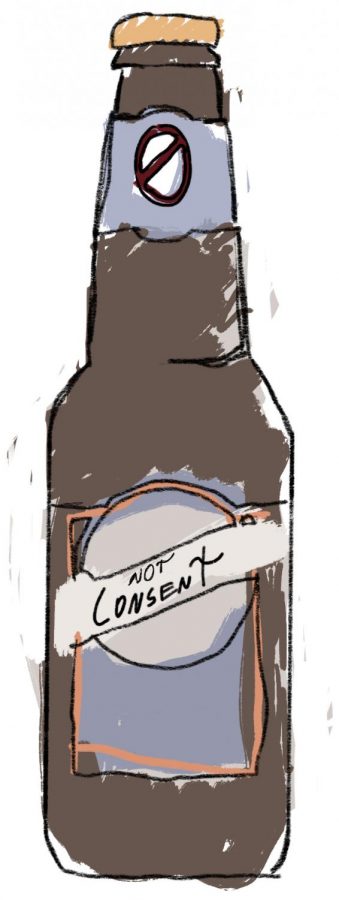Recent Minnesota Supreme Court Ruling Calls for Change
April 29, 2021
The Minnesota Supreme Court ruling against a woman from Minneapolis, Minnesota who was raped sparked outrage after the court claimed, “The legislative definition of ‘mentally incapacitated,’ as set forth in (the law), does not include a person who is voluntarily intoxicated by alcohol.”
In 2017, a woman who consumed alcohol and a prescription narcotic headed into Dinkytown, a Minneapolis neighborhood, with a friend. After being turned down by the bar for being intoxicated, a group of three men approached the women and offered to take them to a party that the men claimed they were on their way to. Instead, the group was driven back to a house by Francois Momolu Khalil, the man who would rape the intoxicated woman later that evening.
The case set forth to the court has no dispute in the details of the altercation and how it occurred. In March of this year, however, the Minnesota Supreme Court overruled Kahlil’s conviction which was previously a third-degree sexual conduct charge. The state statute in Minnesota states that “mentally incapacitated” means “that a person under the influence of alcohol, a narcotic, anesthetic, or any other substance, administered to that person without the person’s agreement, lacks the judgment to give a reasoned consent to sexual contact or sexual penetration.” Khalil was also charged with three other counts of sexual assault felony charges but those were dropped by the courts.
Kahlil’s defense attorney, Will Walker, told CNN their reasoning for appealing the case was because “the trial judge made several missteps during the course of the trial.” Khalil, who had been in custody for a little over a year, was released a Tuesday morning in late March and has chosen to maintain his innocence, claiming that the encounter was consensual. His defense attorney stated his innocence by indicating, “This was a case where the woman voluntarily drank of her own volition and my client played no part in that. He never met her while they were drinking.”
In response to the court’s interpretation of the statute, Lindsay Brice, the Law and Policy Director for the Minnesota Coalition Against Sexual Assault, said to CNN, “The opinion itself is not surprising at all—it simply reflects the need for change at the legislature.” Even a member of the Hennepin County Attorney’s Office, Chuck Laszewski, stated, “We understand the court’s decision and we are working with the Minnesota legislature to change the wording in the law to overcome the court’s objections.”
The legislative issue surrounding “mental incapacitation,” however, is not new to Minnesota. In 2019, a five-part bill was introduced to the state which intended to redefine the state’s definition of “mental incapacitation.” This bill was not put into action since it needed more thought and revision. Stella Jarvis ’21 told RF, “I just think that generally speaking, our country pretends to be progressive and heading in the right direction, which in some cases is true, but we won’t ever get anywhere officially unless something changes about who is actually ruling the country (people in leadership). I, for one, think it’s disgusting that we’re still fighting for something as simple as whether or not rape should be condemnable in this country, but as I said, nothing changes unless our leadership changes, which right now is mostly all white men.”
In February of this year, another bill was created which would make it illegal to blackmail or threaten someone to have sex. This bill would not only create a new sexual extortion crime but it would also start working on the state’s understanding of “mental incapacitation.” Kelly Moller, a Democrat who worked on the bill, said, “It’s really ignited a fire under the bill because people are hearing about the Supreme Court’s decision and are rightly outraged about how our current law works or doesn’t work, as the case may be.” This bill proposal, which has gained bipartisan support, has been given more attention due to this new Minnesota Supreme Court ruling, and the push to enact it is growing.










